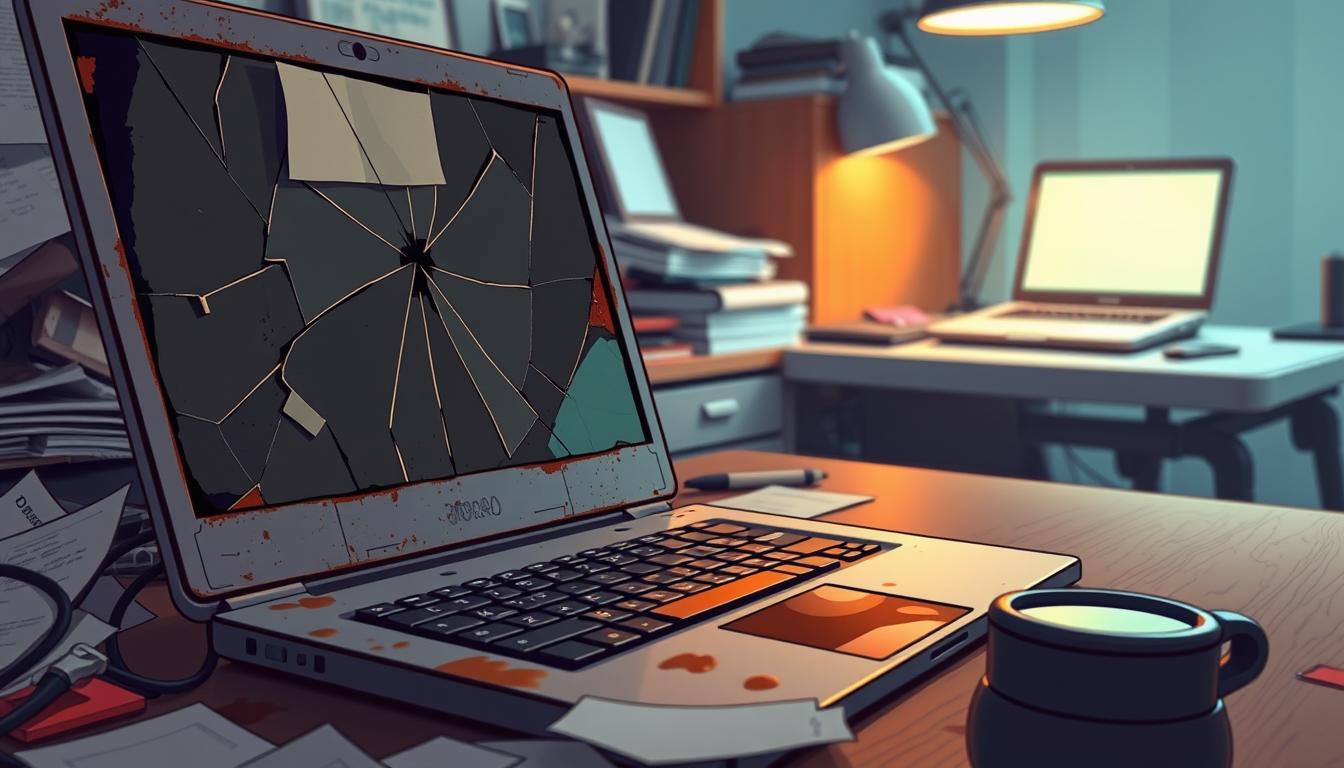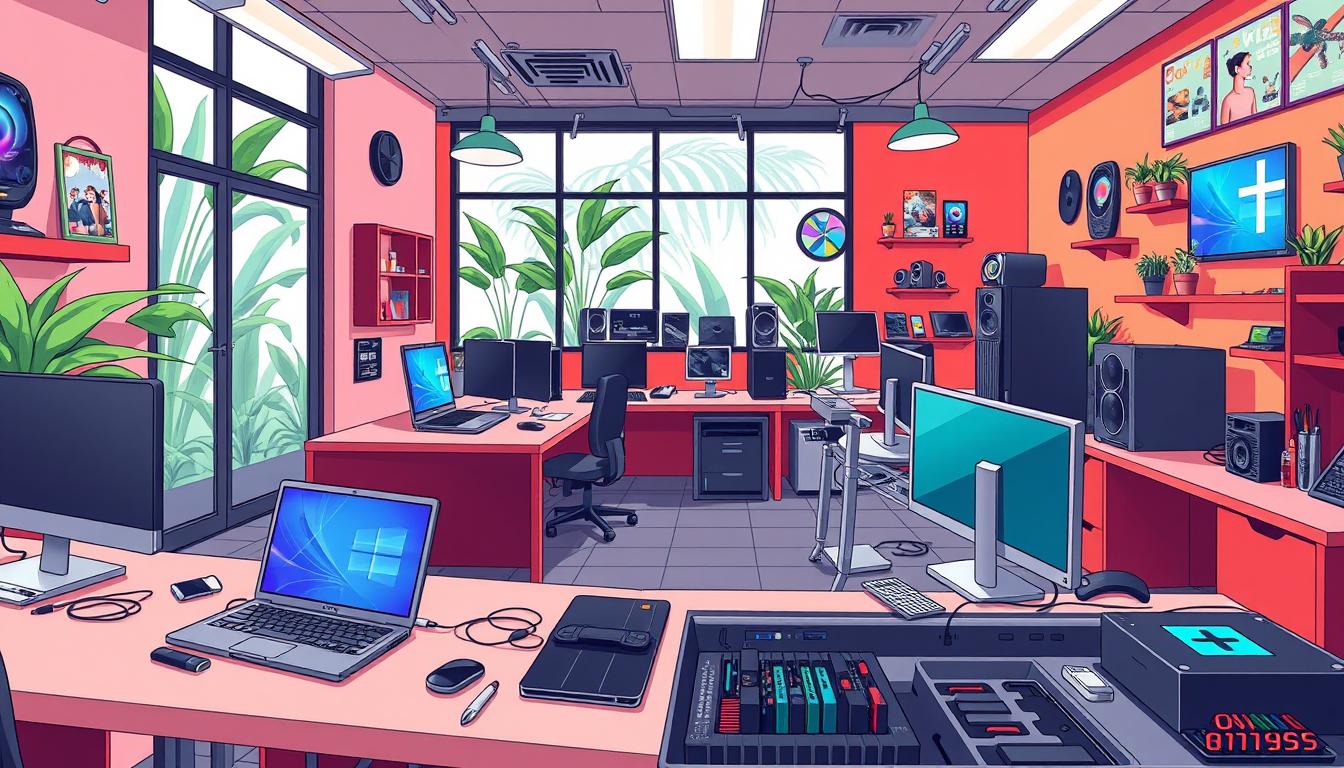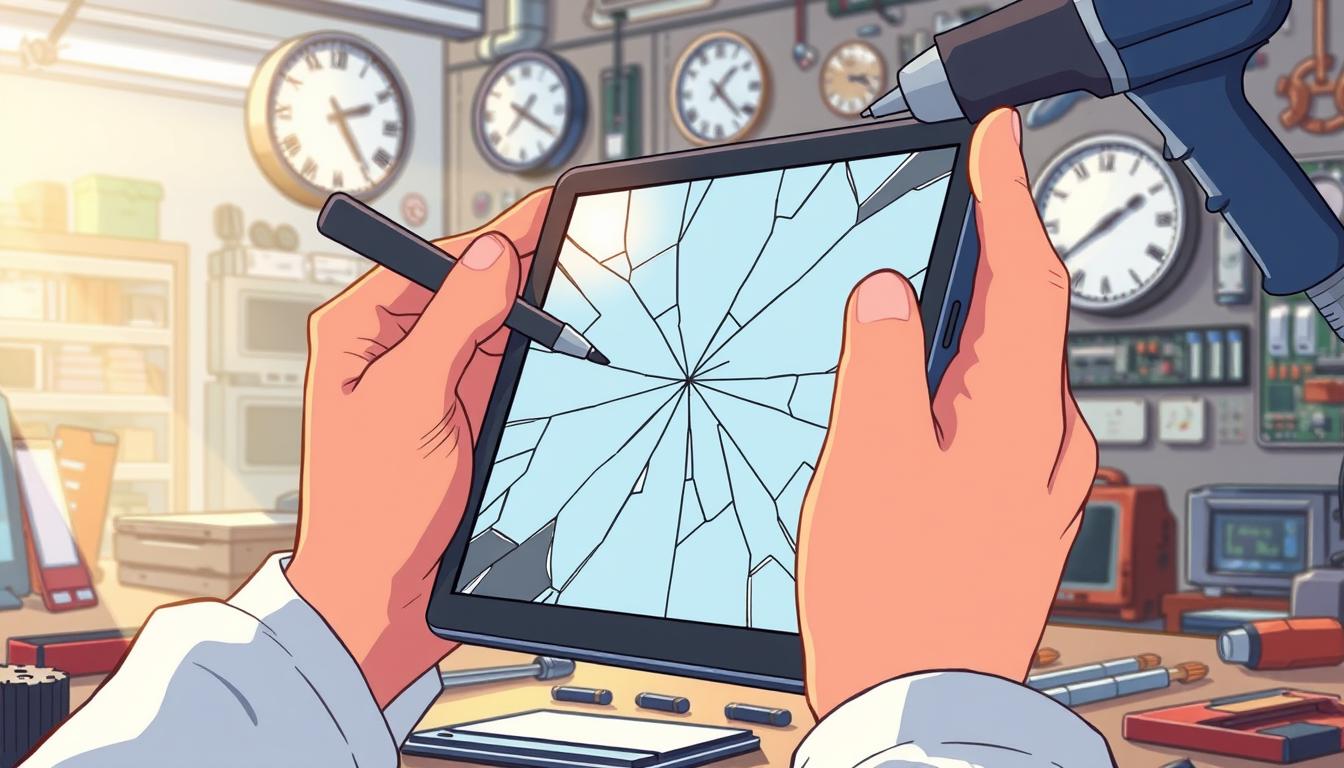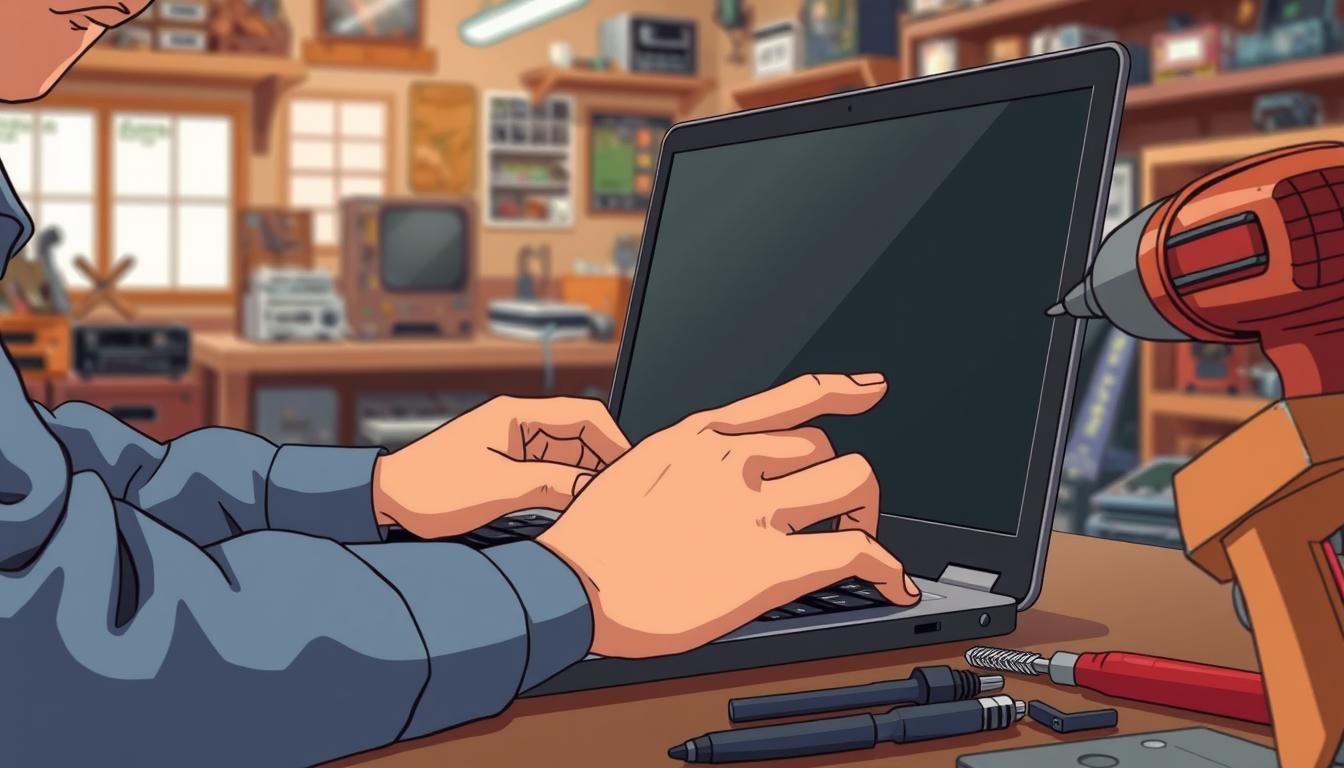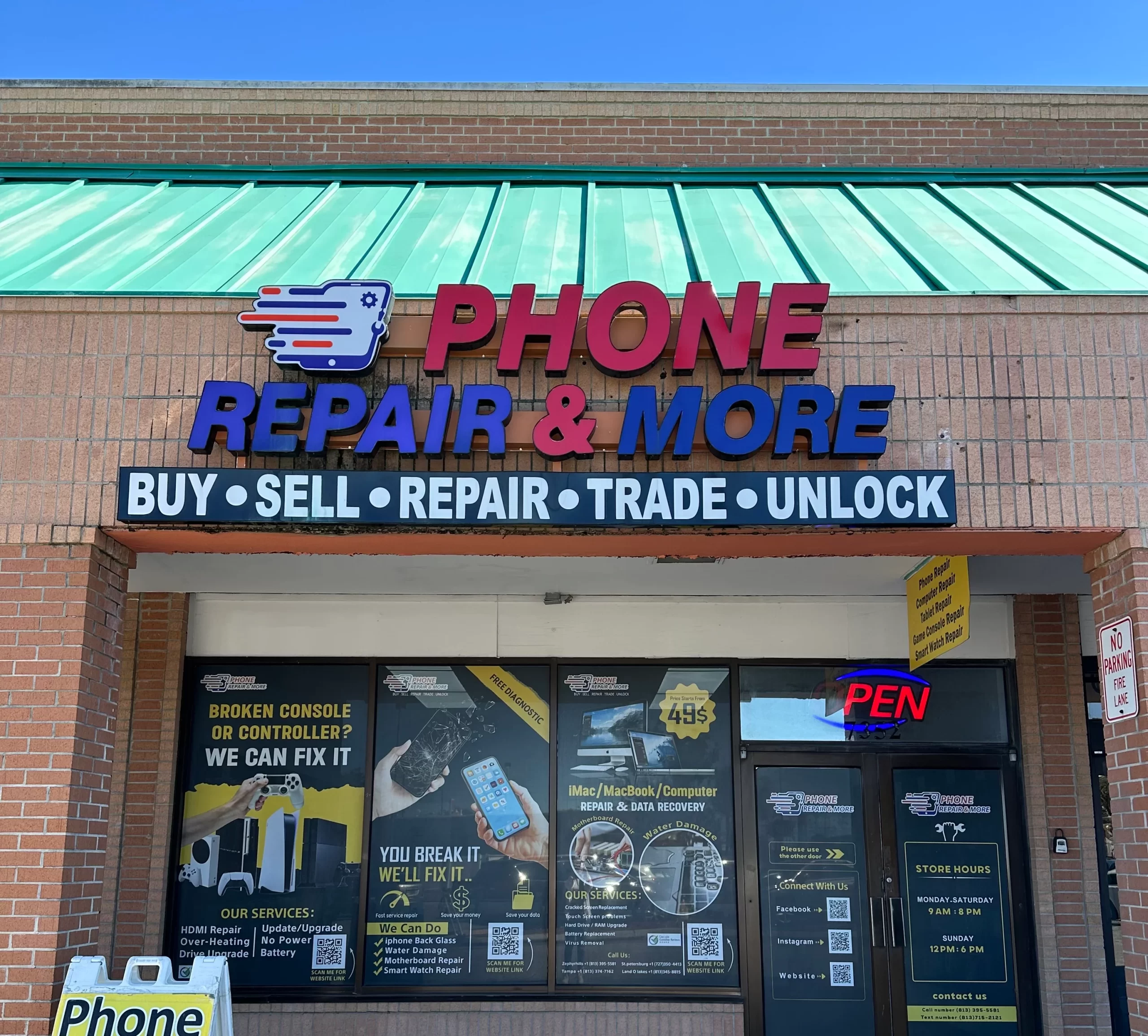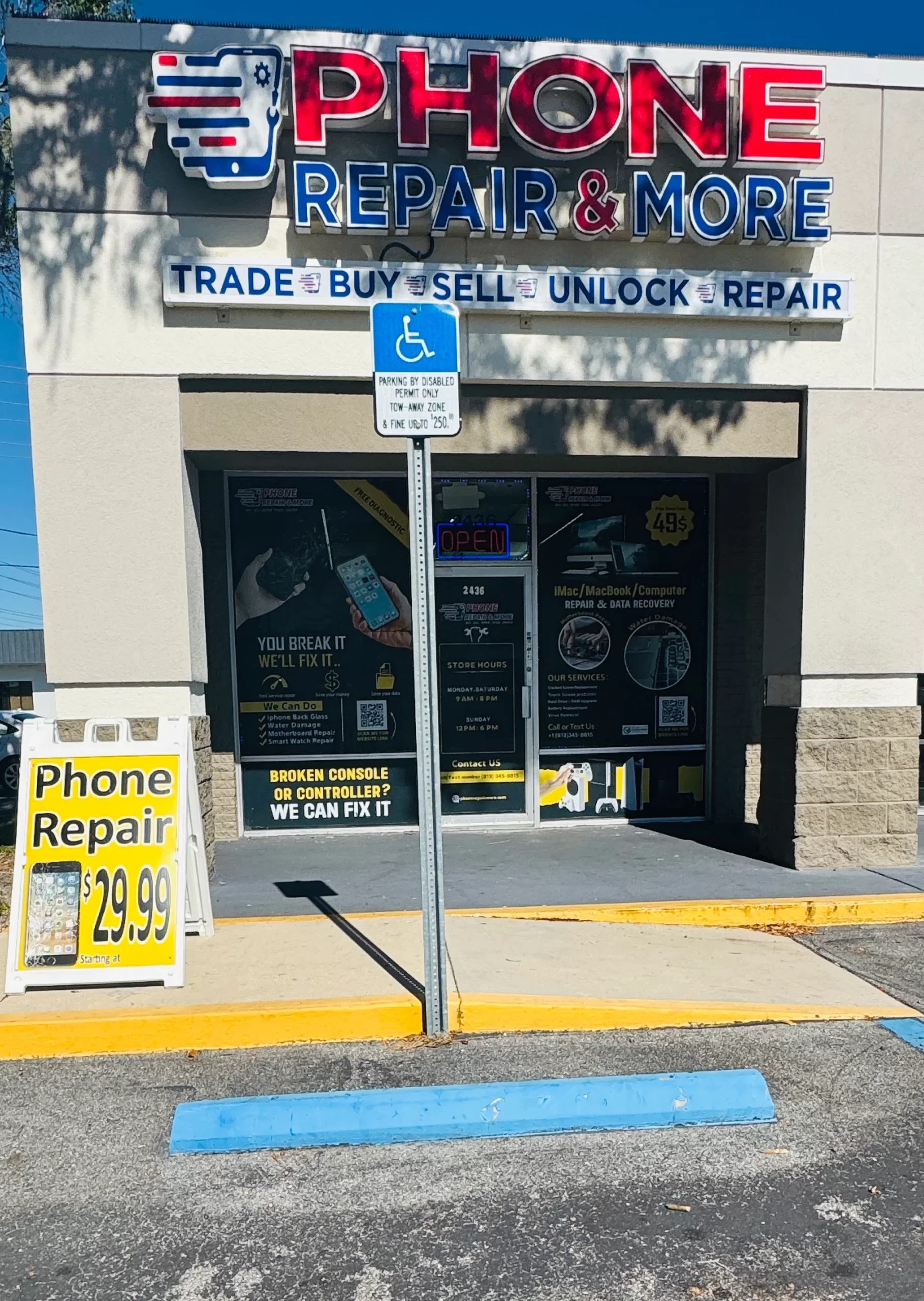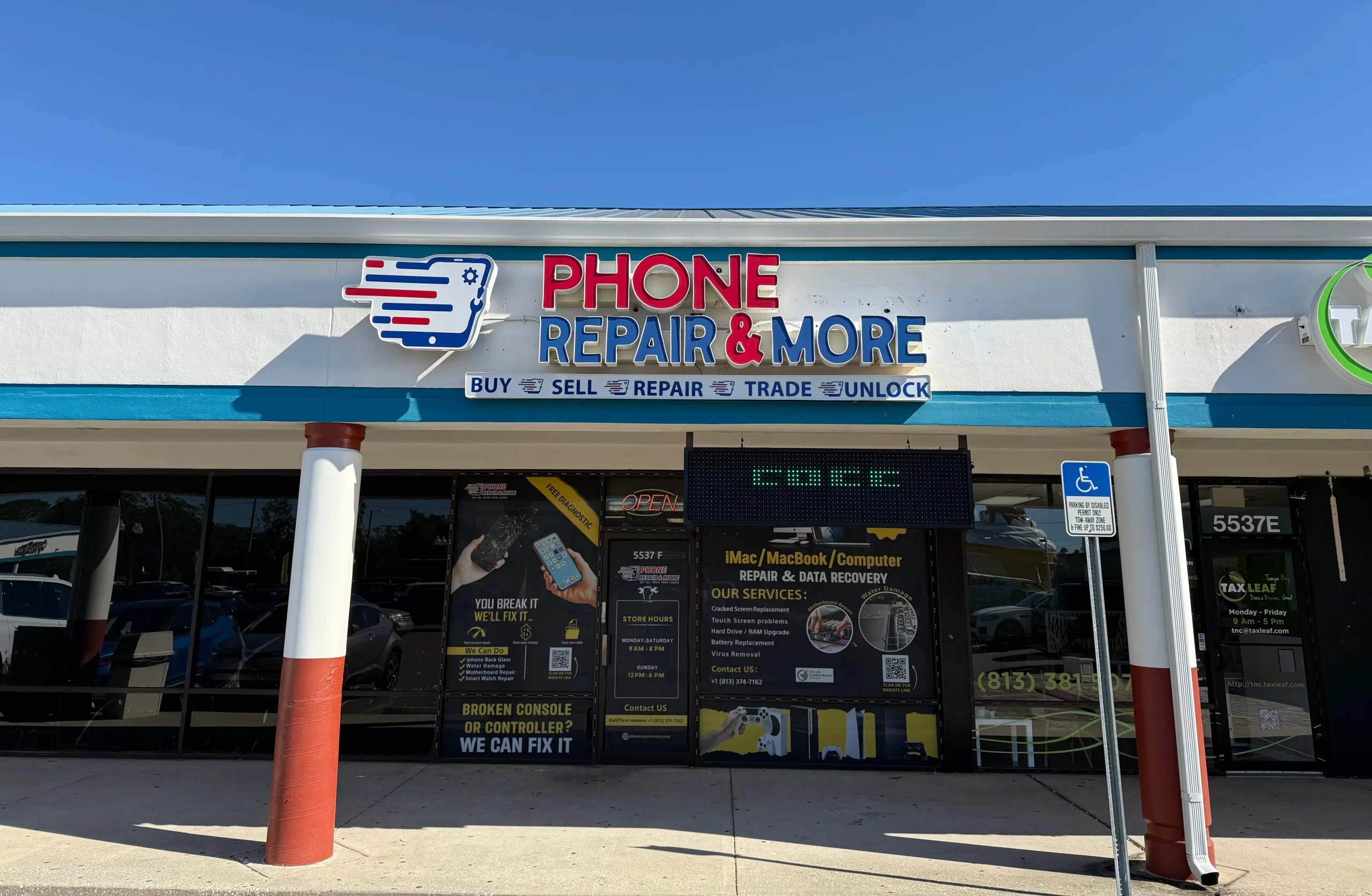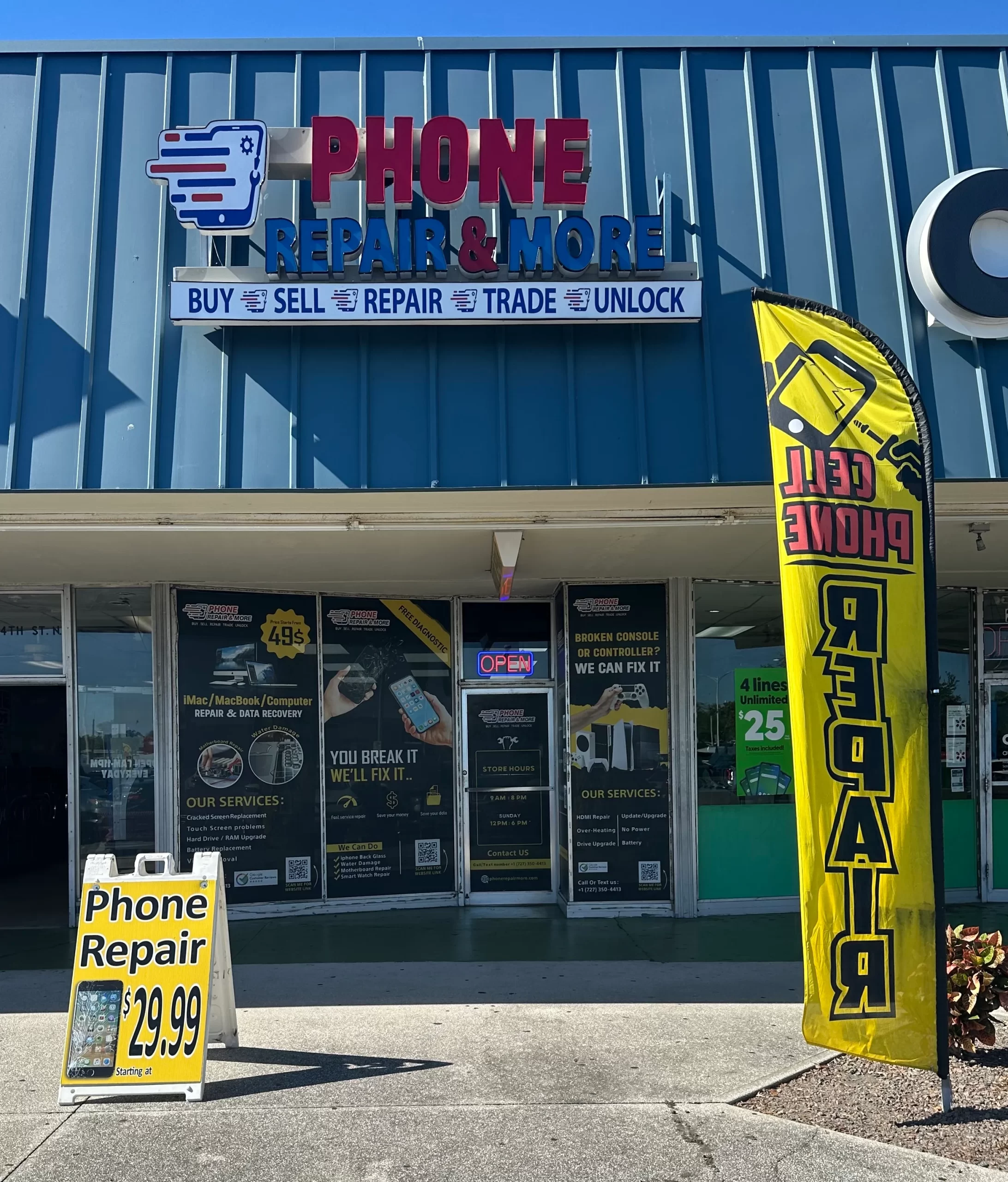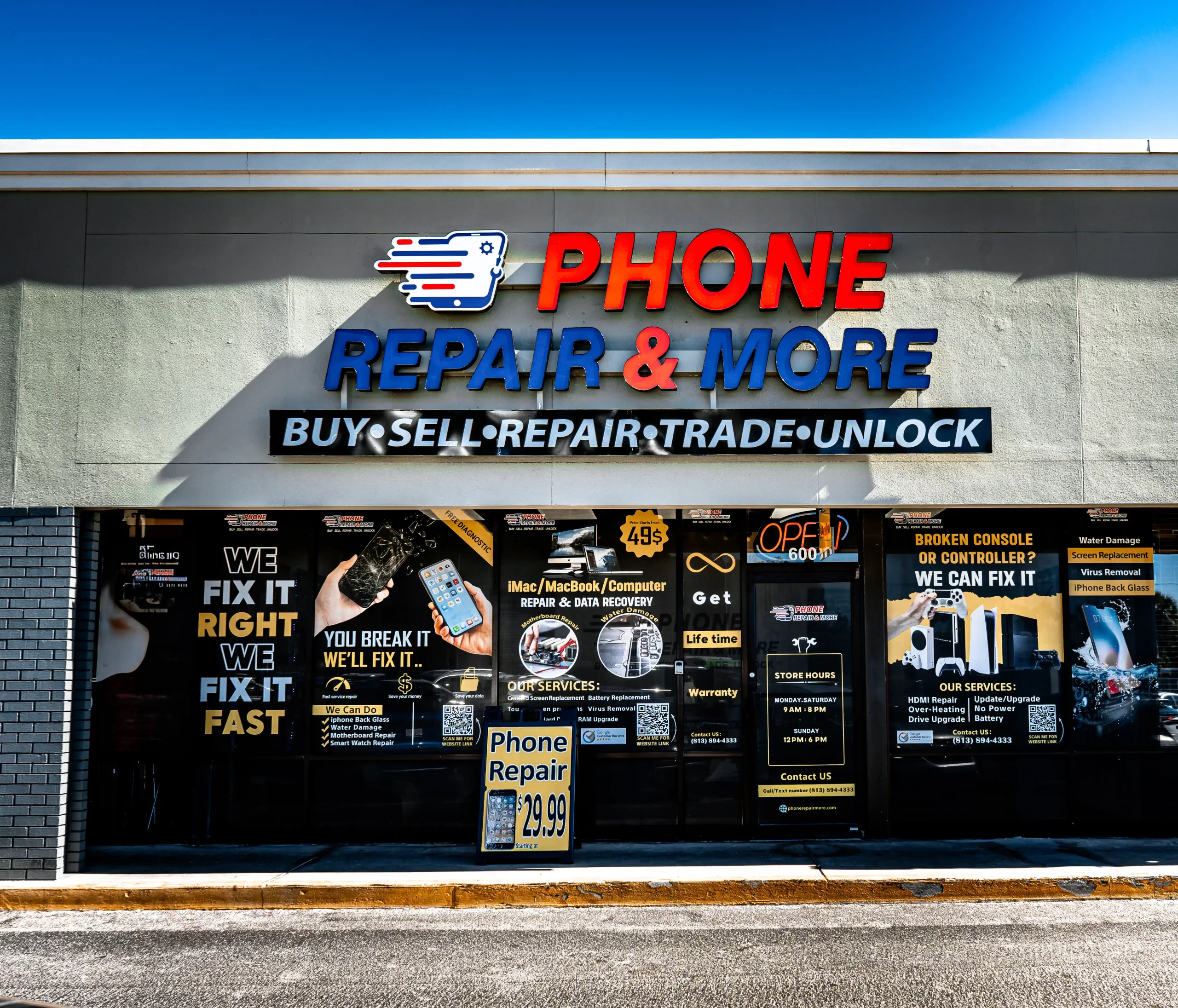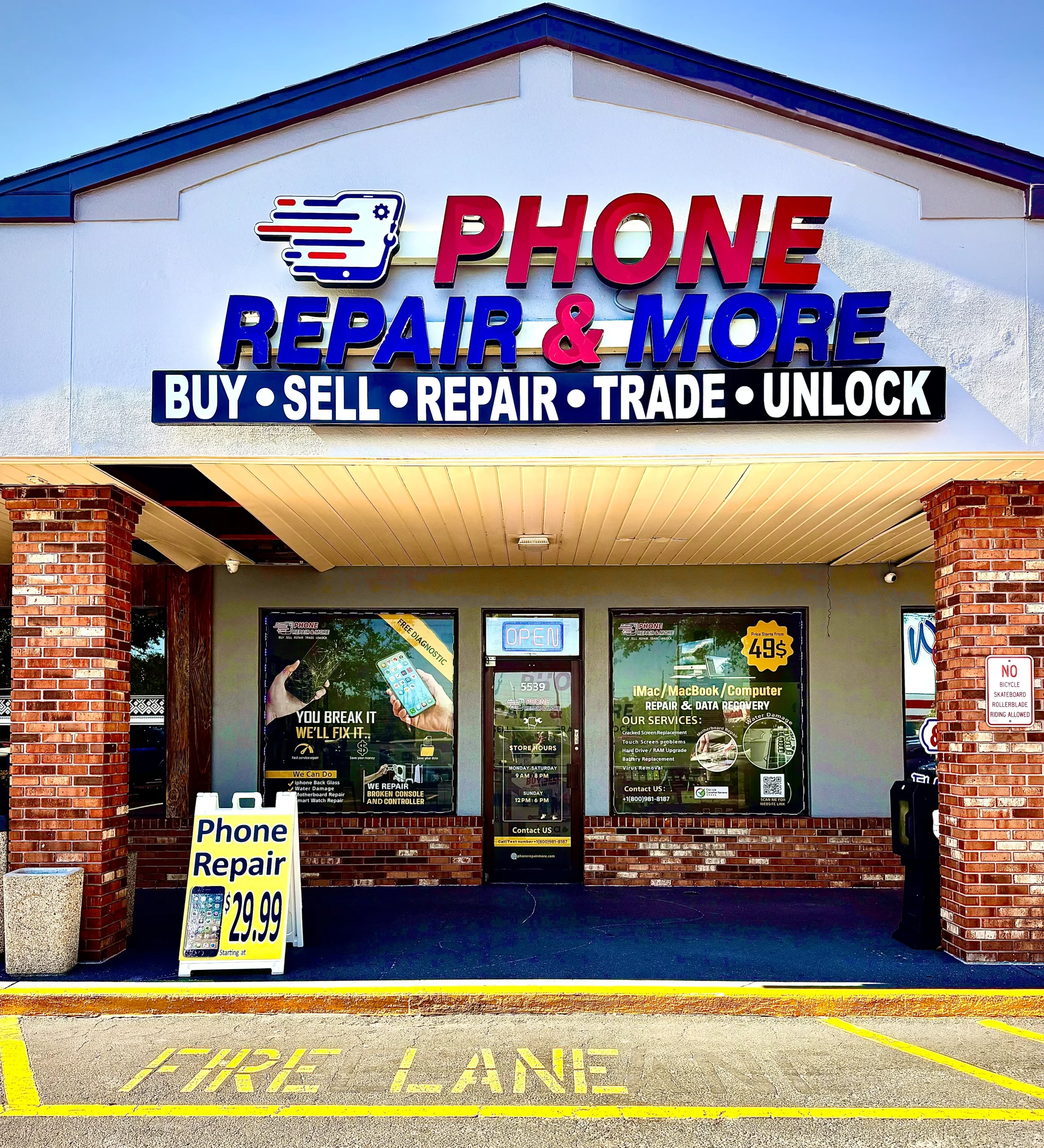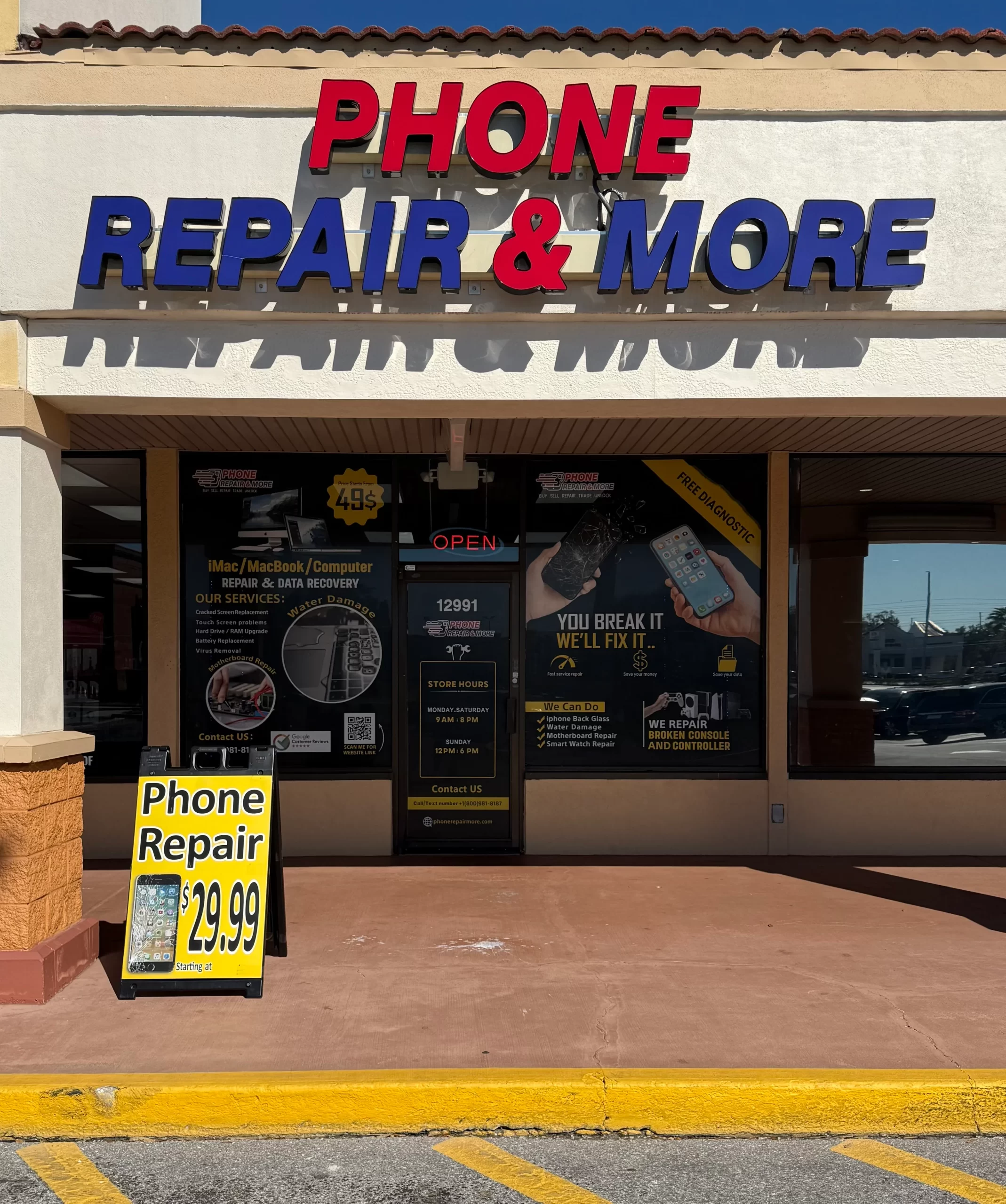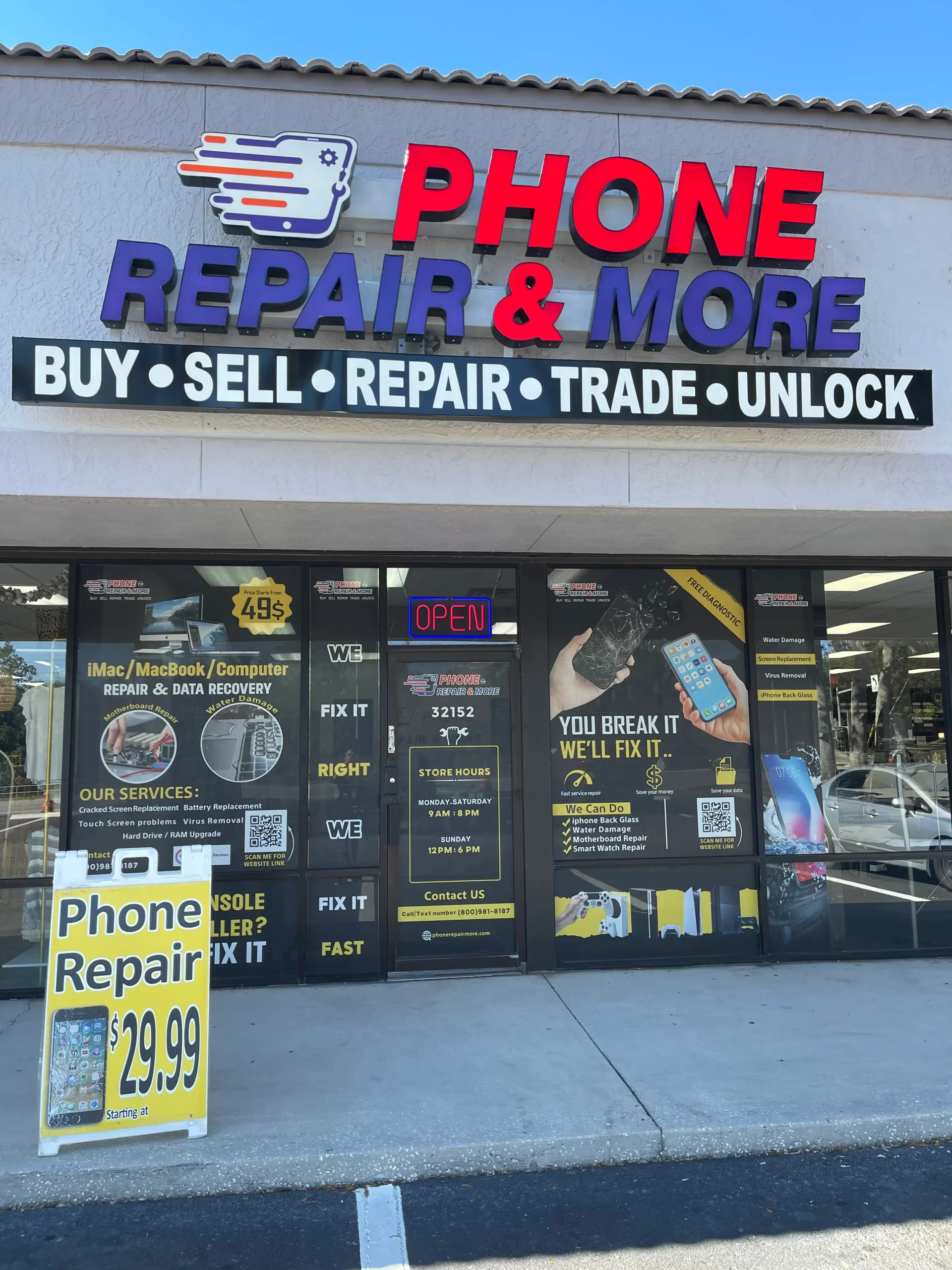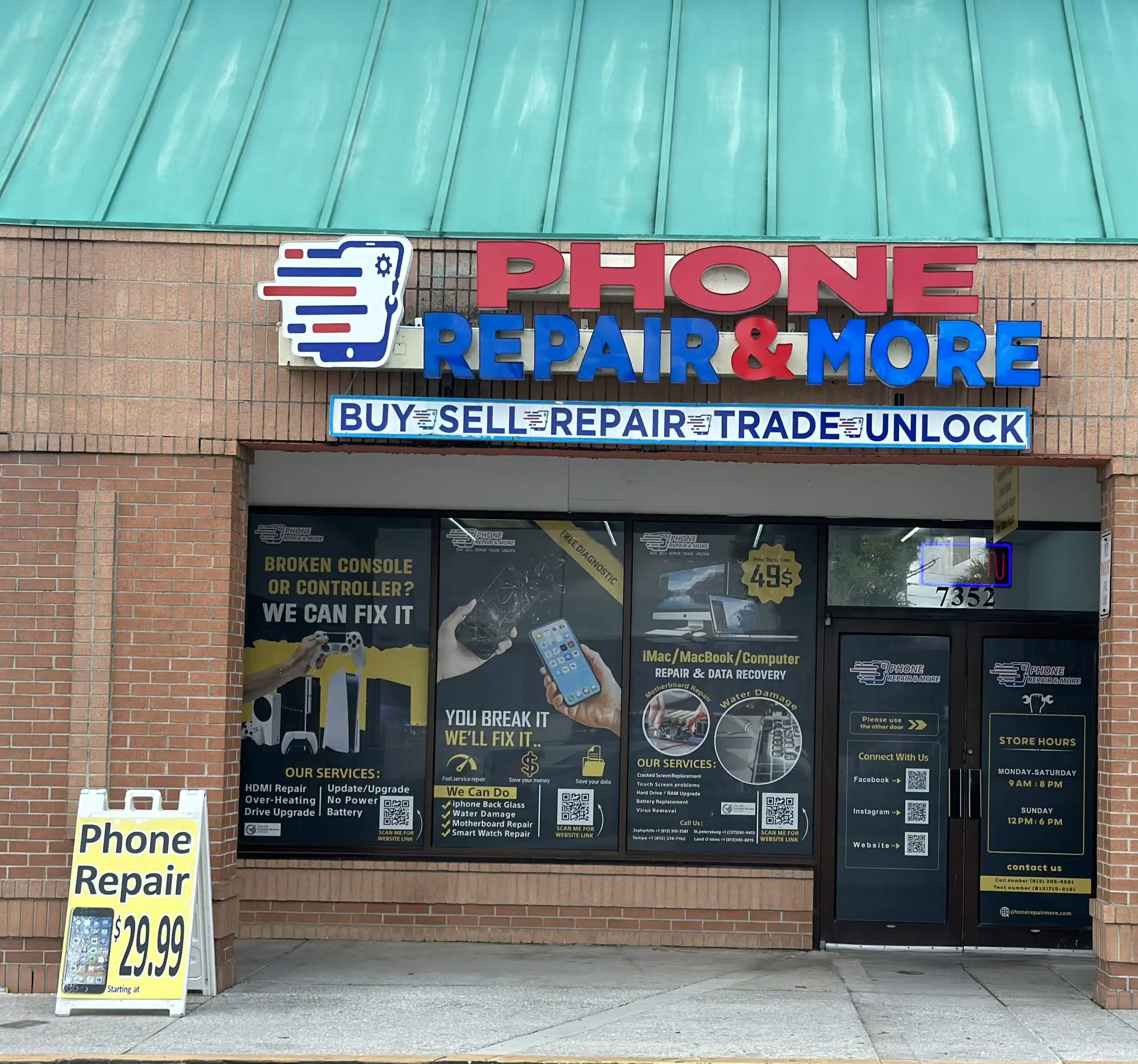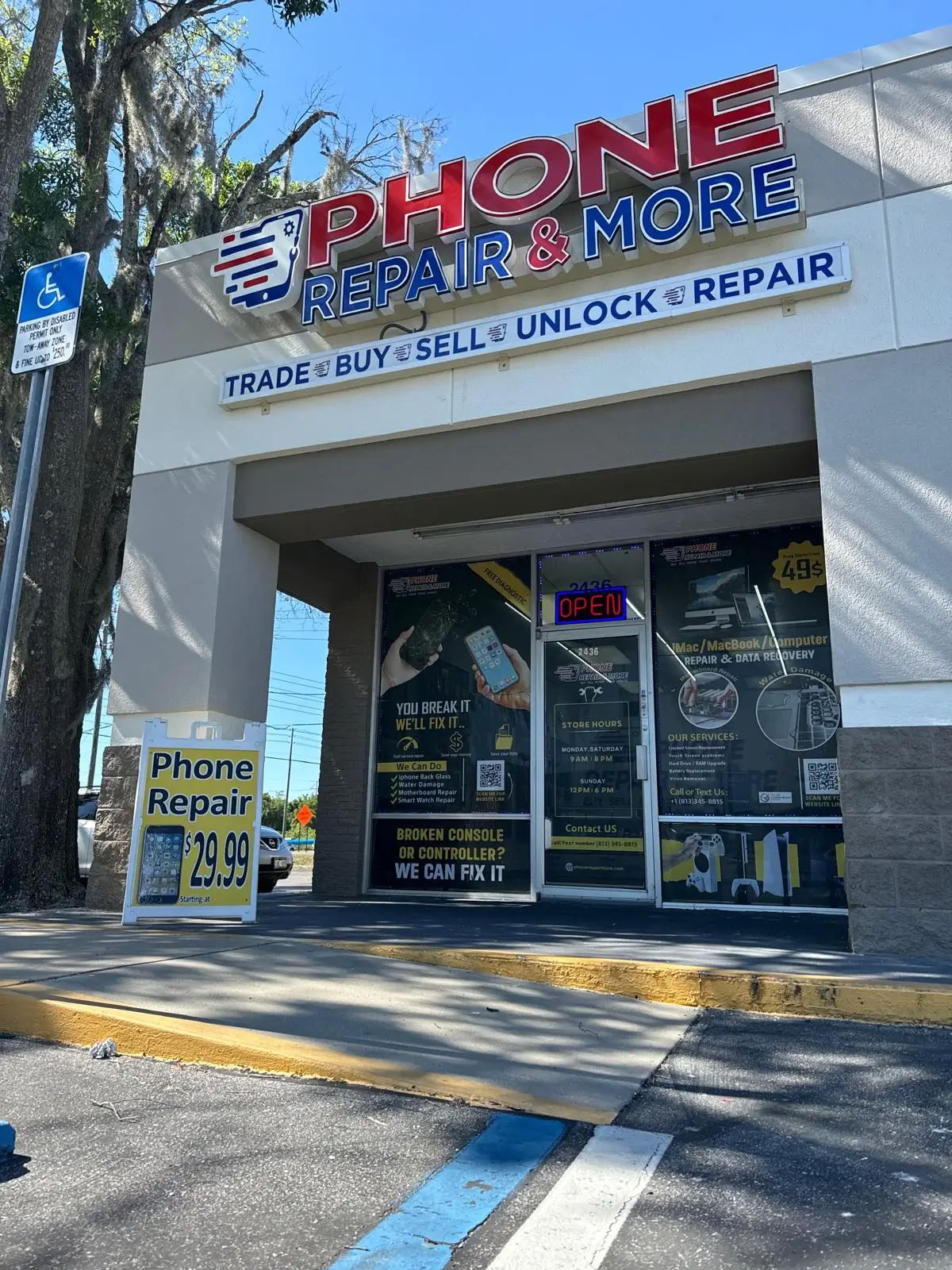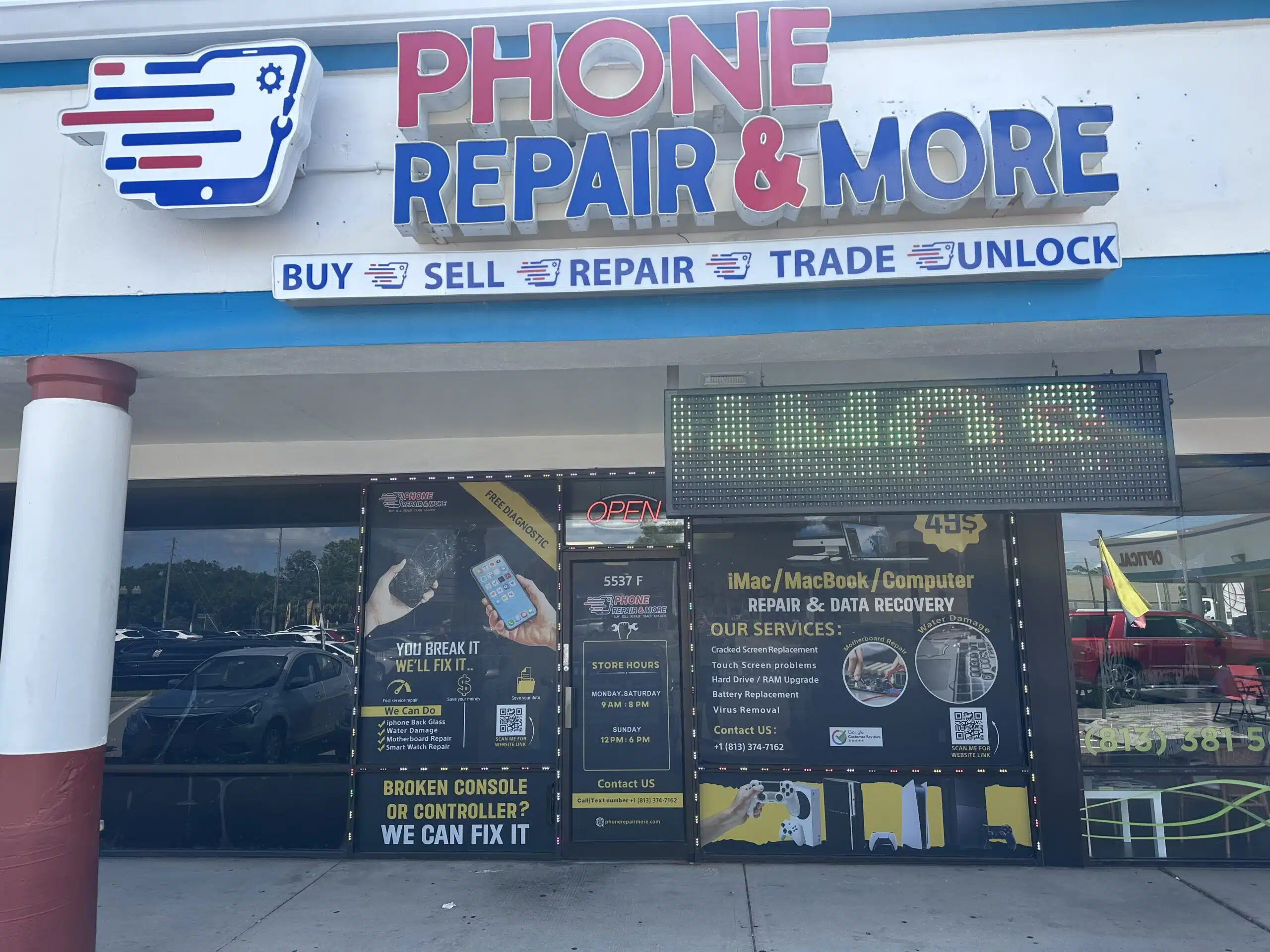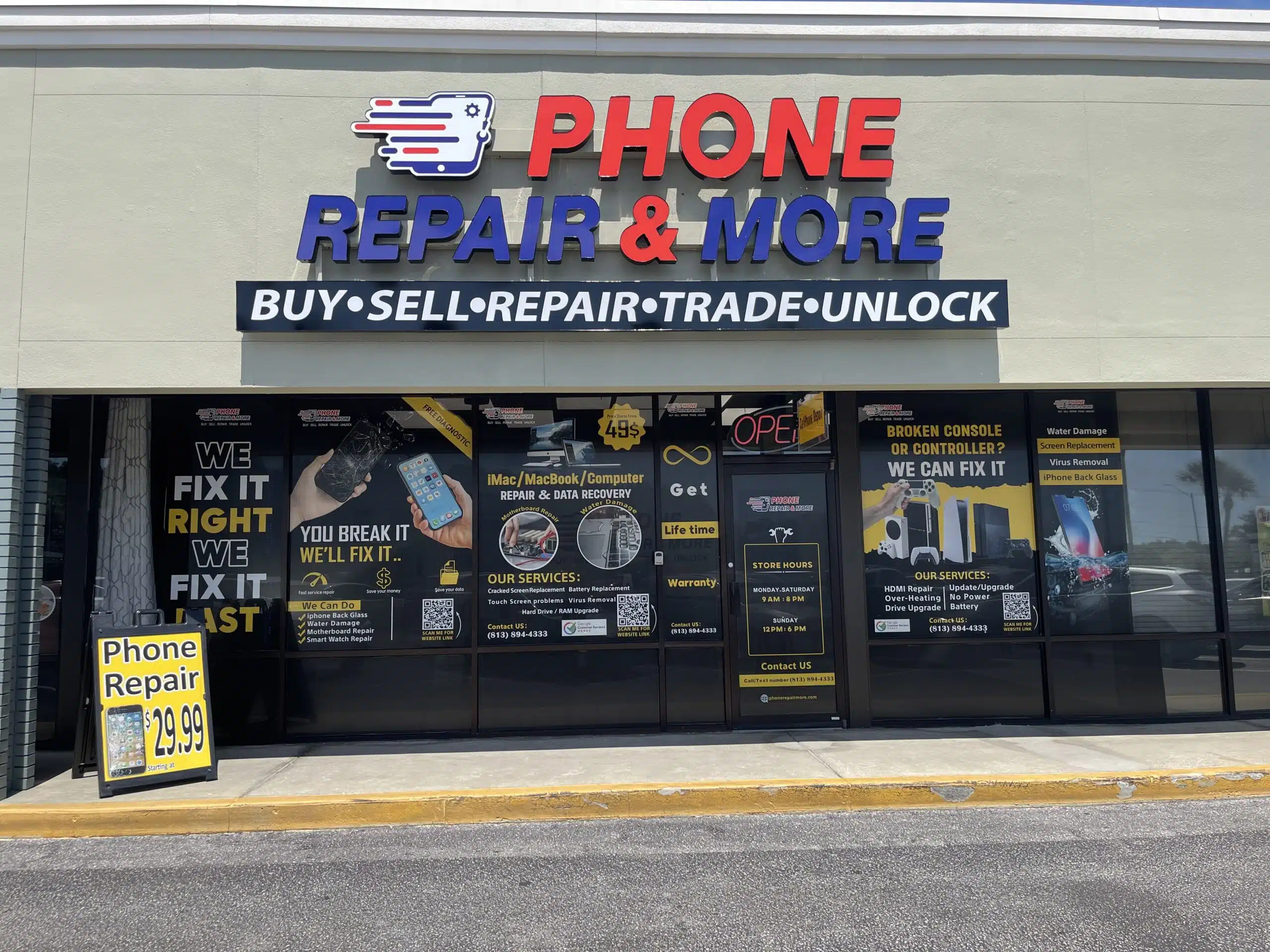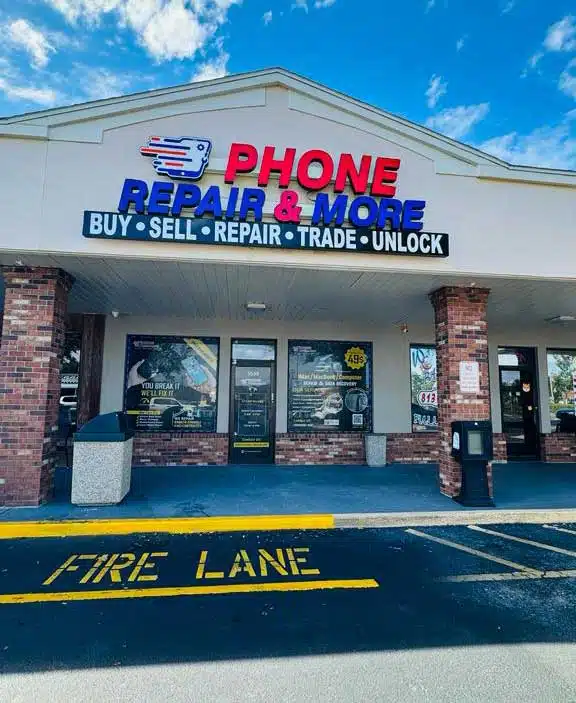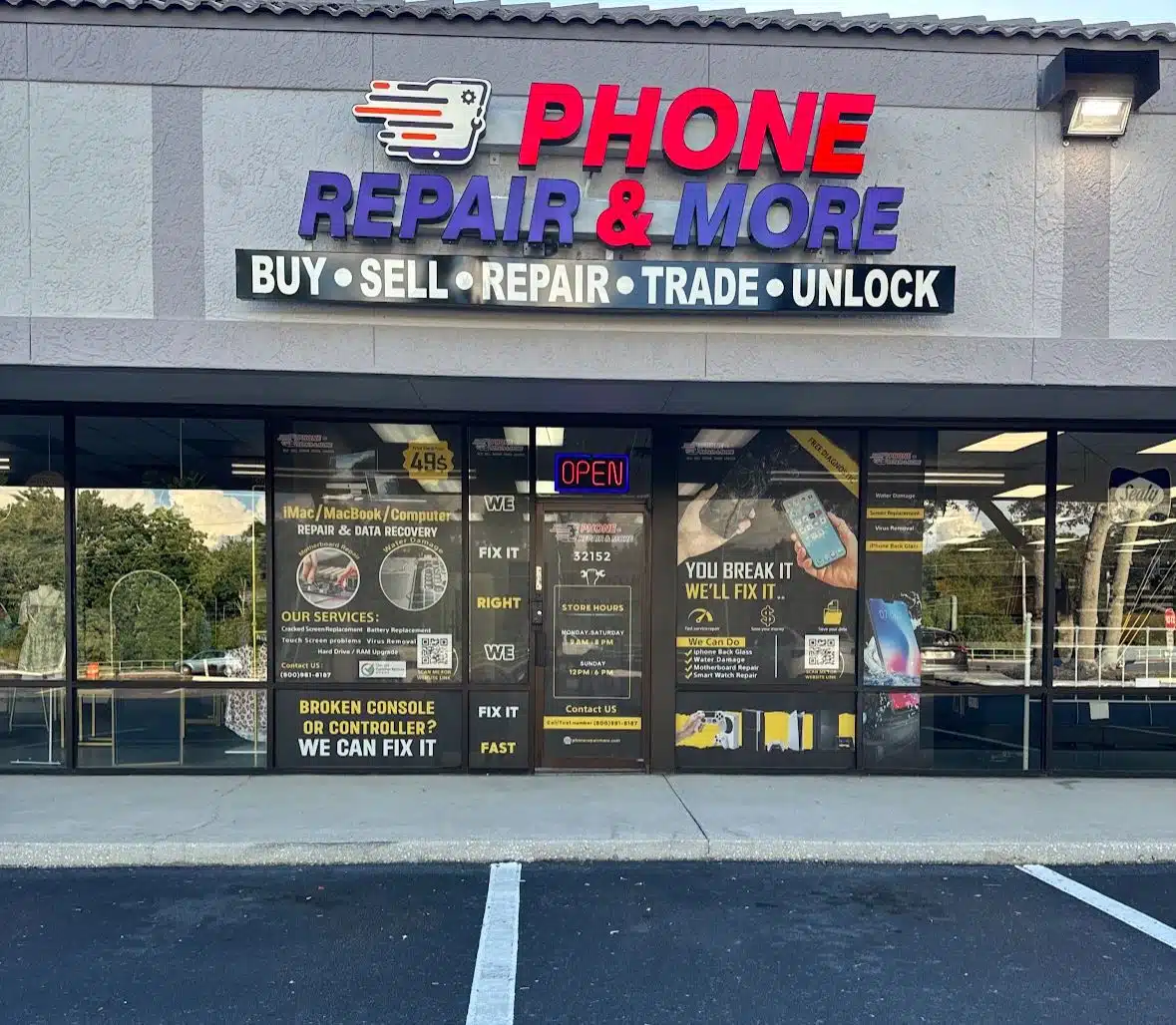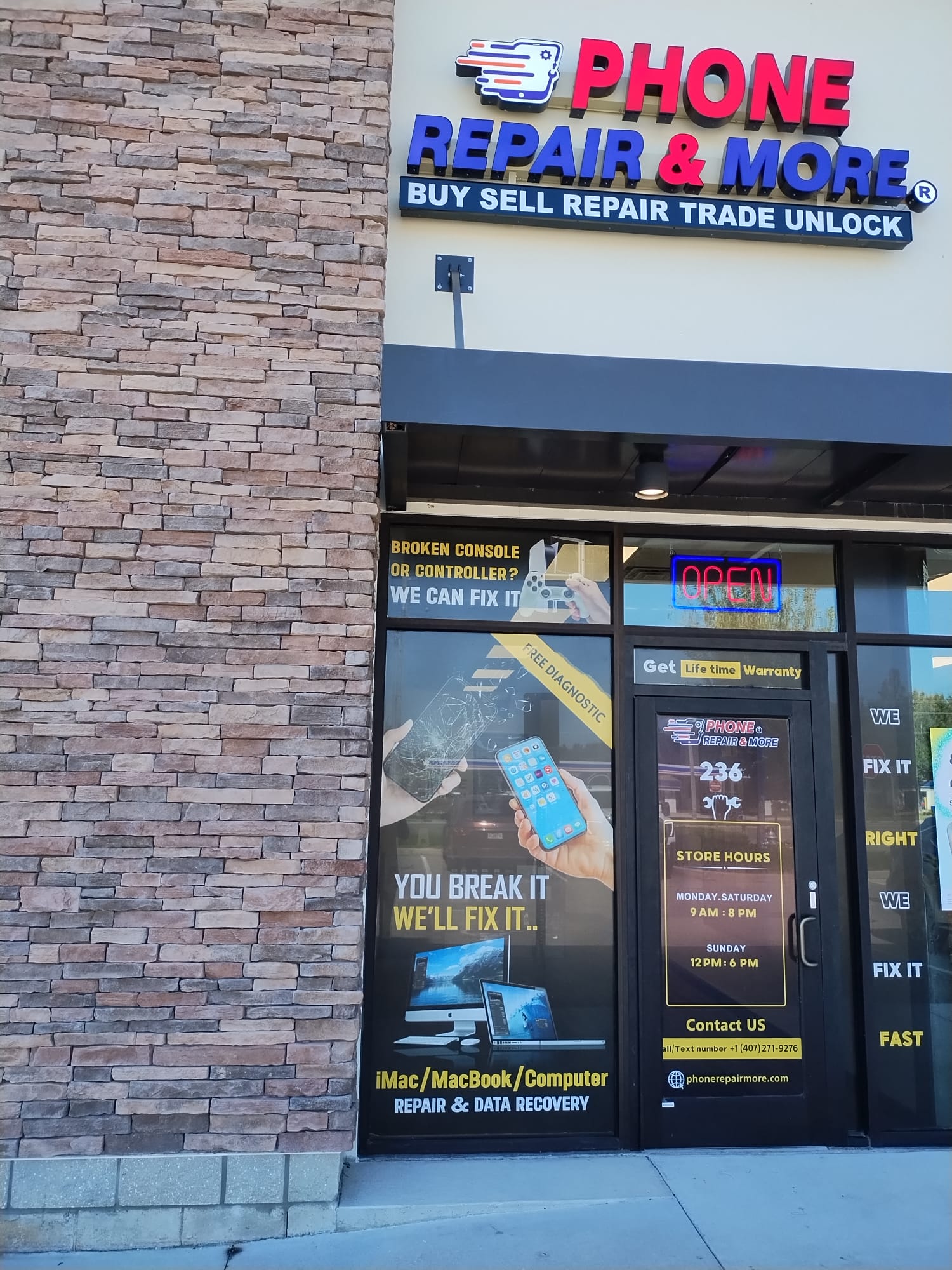Ever thought your laptop might be on its last legs? Or maybe it’s just not keeping up with today’s tech demands? Figuring out when it’s time for a new laptop can be tough. Old tech can slow you down, causing crashes and making work harder.
As your tasks get more complex, your old laptop might not cut it. Wondering if it’s time for a new one? Talking to experts at Phone Repair & More can help. They can check your laptop and tell you if fixing it or getting a new one is better for your wallet.
Key Takeaways
- Laptop performance issues can signal the need for a computer replacement.
- Most laptops last between 3 to 5 years before becoming outdated.
- Consider both repair costs and new laptop prices when evaluating your options.
- Battery life and hardware limitations are common indicators for an upgrade.
- Choosing the right processor is essential for meeting your specific needs.
- Extended warranties may not be worth the investment for typical users.
Signs Your Laptop Is Slowing Down
Knowing when your laptop is slowing down is key to keeping it running well. Many problems can make it less efficient, affecting how you use it. Fixing these issues quickly can help decide if you need to upgrade your laptop.
Frequent Freezes Or Crashes
Freezes or crashes happening often mean there’s a problem. These issues can come from hardware failures or too much strain from new apps. This makes your laptop less reliable and worries about its future.
Long Boot-Up Times
Long times to start up can mean you need a storage or software update. It’s good to keep 10-20% of your hard drive free for best performance. Also, keeping your operating system up to date helps your laptop start faster.
Applications Take Forever To Load
Apps taking too long to open means your laptop might not have enough RAM or power. Getting a Solid State Drive (SSD) can make your laptop much faster. Also, keep your operating system updated for better performance.
| Indicator | Description | Recommended Action |
|---|---|---|
| Frequent Freezes/Crashes | Indicates potential hardware failures or software strain. | Diagnose hardware and consider laptop upgrade. |
| Long Boot-Up Times | Reflection of storage issues or software obsolescence. | Free up space, update software. |
| Slow Application Loading | Suggests inadequate RAM or processor capabilities. | Consider SSD upgrade, enhance memory. |
Battery Life Issues
Battery life is key to a laptop’s performance and use. Many users face battery problems that make them think about repairs or a new laptop.
Draining Quickly
A battery that drains fast is a big problem. A good battery should last six hours or more. If it dies in a few hours, it’s probably time for a new one.
This can be really frustrating. Users often find themselves stuck to charging outlets.
Unable To Hold Charge
A battery that can’t hold a charge is failing. This usually happens after a year or so, or after 300 to 400 charges. Users might see battery percentage jump around, making it hard to know when to charge.
This can mess up work and even cause data loss.
Charging Problems And Overheating
Charging issues can be due to a bad battery, which can also get too hot. Heat can damage the battery and other parts inside. A bulging battery is especially dangerous, as it can leak or even explode.
Checking your laptop’s built-in diagnostics regularly can help. It can warn you of any battery problems before they get worse, saving you from expensive repairs.
Hardware Limitations
Older laptops struggle to keep up with new technology. They face many issues that make a new laptop a better choice. These problems include not being able to run new software, not having enough memory or storage, and being too old.
Incompatible Software Requirements
New software needs more from laptops than older ones can provide. Upgrades like Windows 11 and macOS 14 Sonoma require newer hardware. This leaves older laptops unable to use new features or get important security updates.
Not being able to update software makes these laptops outdated. This limits how long they can be used and their usefulness.
Insufficient Memory And Storage
Today’s apps and files need more from laptops than they used to. Not having enough memory or storage slows things down. Even upgrading storage might not fix slow starts if other parts are old.
Trying to run many apps at once can cause problems. This leads to frustration and makes work harder.
Age Of The Laptop
Laptops usually last three to five years. But, using them for longer can cause serious problems. Software updates can make older parts overheat, causing issues like graphics problems or loud fans.
The age of a laptop increases the chance of these issues. It makes it hard to keep up with today’s computing needs.
Physical Damage To Your Laptop
Laptops are very fragile, even minor physical damage can cause big problems. It’s important to spot and fix these issues to keep your laptop working well and lasting longer.
Cracks And Scratches
Cracks and scratches not only look bad but can also hide deeper problems. For example, a broken screen might have dead pixels or unresponsive areas. These issues can really limit how you use your laptop. Getting professional laptop repair is a good idea, especially if it’s still under warranty to save money.
Keyboard And Screen Problems
Keyboard and screen troubles are common. Sticky keys or a flickering screen can really slow you down. Fixing these problems quickly can stop more damage and keep your laptop running smoothly. But, fixing these issues can cost a bit, so it’s something to think about.
Port Or Connection Issues
Problems with ports or connections can make using external devices hard. Issues with USB, HDMI, or charging sockets might need a lot of laptop repair. It’s best to be careful with your laptop and check it often for damage. Taking care of your laptop can help it last longer and save you money on repairs.

Performance For Specific Tasks
Knowing what your tasks need can help decide if you should get a new computer. Older laptops often can’t handle new software and big apps well.
Gaming Requirements
Gaming needs a lot from a laptop. You need a strong GPU and lots of RAM for good games. If your old laptop can’t run new games well, it’s time for a change. A better machine will make gaming better.
Video Editing Demands
Video editing is hard on laptops. It needs lots of power, fast storage, and memory. If your laptop can’t handle video editing, it’s time for a new one. A laptop made for editing will work better.
Running Multiple Applications
Many people use their laptops for lots of things at once. If your laptop freezes with too many apps open, it’s not doing well. Getting a new laptop can help keep you working smoothly.
Software Updates And Compatibility
Keeping your software up to date is key for a smooth computer experience. When you update your operating system, it might not work with old technology. This can leave your personal data at risk.
Operating System Upgrades
Operating systems only support hardware for so long. If your laptop is getting old, you might not be able to update. These updates improve performance and add important security features. Without them, your computer is more vulnerable to attacks.
Obsolete Applications
Using old applications is risky. They often don’t get updates, so they can’t protect against new threats. Using old apps with old systems can put your personal info at risk and slow you down.
Security Risks With Older Systems
Old systems can’t handle the latest security features, making them vulnerable. You might see your computer crash or slow down a lot. Getting a new laptop can help avoid these problems and make your computer work better.
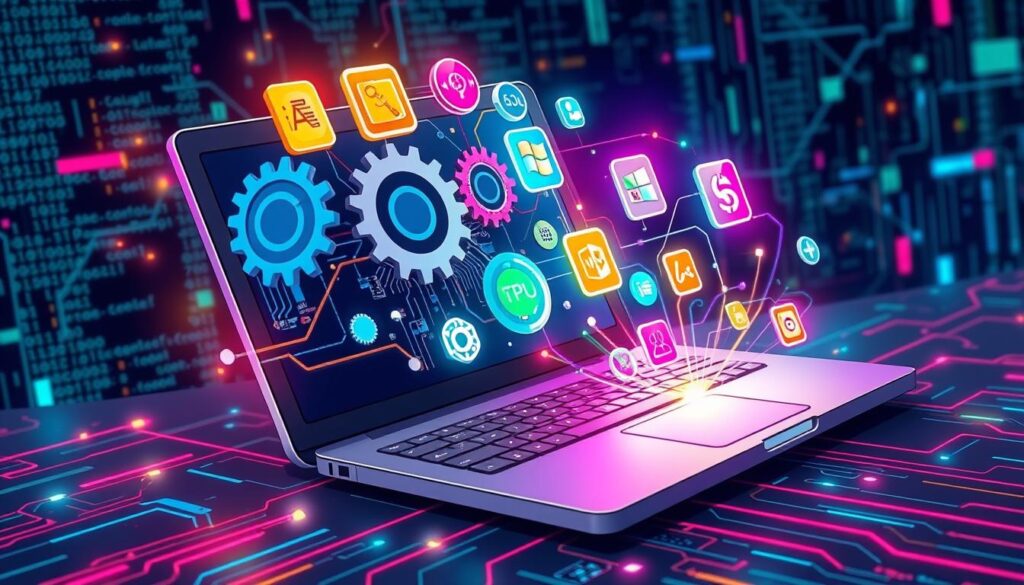
| Aspect | Old Systems | New Systems |
|---|---|---|
| Operating System Support | Limited, often outdated | Regular updates and support |
| Application Compatibility | Obsolete applications increasingly incompatible | Compatible with the latest software |
| Security Features | Frequent vulnerabilities | Advanced security protections |
| Performance | Frequent crashes and freezes | Stable and efficient operation |
| Upgrade Potential | Difficult due to compatibility issues | Easy upgrades with high compatibility |
Cost Of Repairs Vs. Replacement
Deciding whether to repair or replace your laptop is a big financial choice. You need to look at the upfront costs and how long your device will last. This helps you make a smart choice.
Evaluating Repair Costs
Laptop repairs at Asurion stores cost about $150 on average. Consider how long your laptop will last after repairs. If it’s 1 or 2 years old, fixing it might be better than buying a new one.
If repairs cost half as much as a new laptop, it might be cheaper to replace it. This depends on your laptop’s age and condition.
Comparing New Laptop Prices
New laptops have different prices, so it’s important to shop around. Look for deals during back-to-school and Black Friday. These times often have great discounts.
New laptops usually last 3 to 5 years. They perform better and can handle more tasks than older models.
Longevity And Reliability Of New Devices
Buying a new laptop often comes with a warranty. This makes it more reliable. You can also upgrade your laptop to make it last longer and work better.
Repairing your old laptop might not be a long-term solution. New laptops offer better performance and last longer. This could save you money in the long run.
| Factor | Repair | Replacement |
|---|---|---|
| Average Cost | $150 | Varies greatly |
| Expected Lifespan | 1-2 years (if newer) | 3-5 years |
| Performance Improvement | Temporary | Significant with new tech |
| Warranty Coverage | No warranty | Typically included |
| Best Deals | N/A | Back-to-school, Black Friday |
User Experience And Satisfaction
The user experience is key when deciding if a laptop upgrade is needed. Frustration grows when performance issues persist. Slow boot times and long loading times can disrupt daily activities.
Frustration With Slow Performance
Slow performance leads to a bad user experience. Simple tasks become hard, causing irritation. Frequent freezes or crashes make users want to replace their laptops quickly.
Impact On Productivity
Performance issues hurt productivity. Employees need reliable devices for their work. A slow laptop can’t keep up with today’s work demands.
Need For Portability And Convenience
Portability is essential in today’s fast-paced world. Users need laptops that are both functional and easy to use. A reliable laptop ensures efficiency and justifies the upgrade.
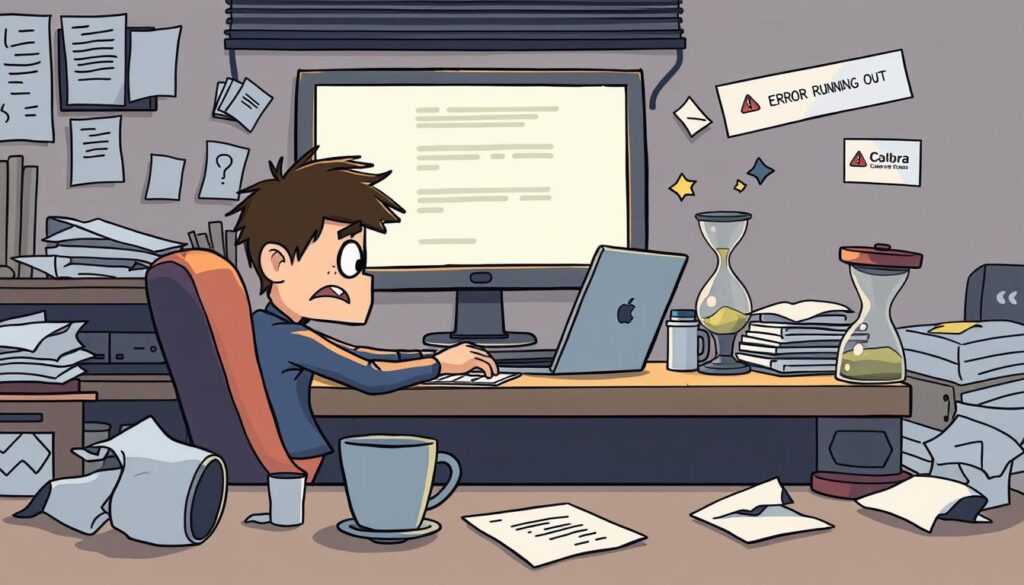
How To Choose The Right New Laptop
Before you upgrade your laptop, know what you need. Are you a student needing a light device for simple tasks? Or do you work hard and need a powerful laptop? Figuring out how you use your laptop helps you pick the right one. This way, you avoid problems with slow performance or not enough storage later.
Understanding Your Needs
Then, think about what makes a laptop perform well. For everyday use, an Intel Core i3 or AMD Ryzen 3 might be enough. But if you game or edit videos, you’ll need an Intel Core i7 or Ryzen 7. Also, check the RAM and storage to make sure it’s enough for your tasks.
With more of us doing many things at once, look for laptops with at least 16 GB of RAM. Also, choose one with 512 GB to 1 TB of storage. This will help you keep up with your needs over time.
Key Features To Consider
Lastly, think about your budget for the new laptop. Decide how much you can spend and what you want for the future. Apple’s M1 and M2 chips are very efficient but cost more. It’s important to find a balance between what you need and what you can afford.

